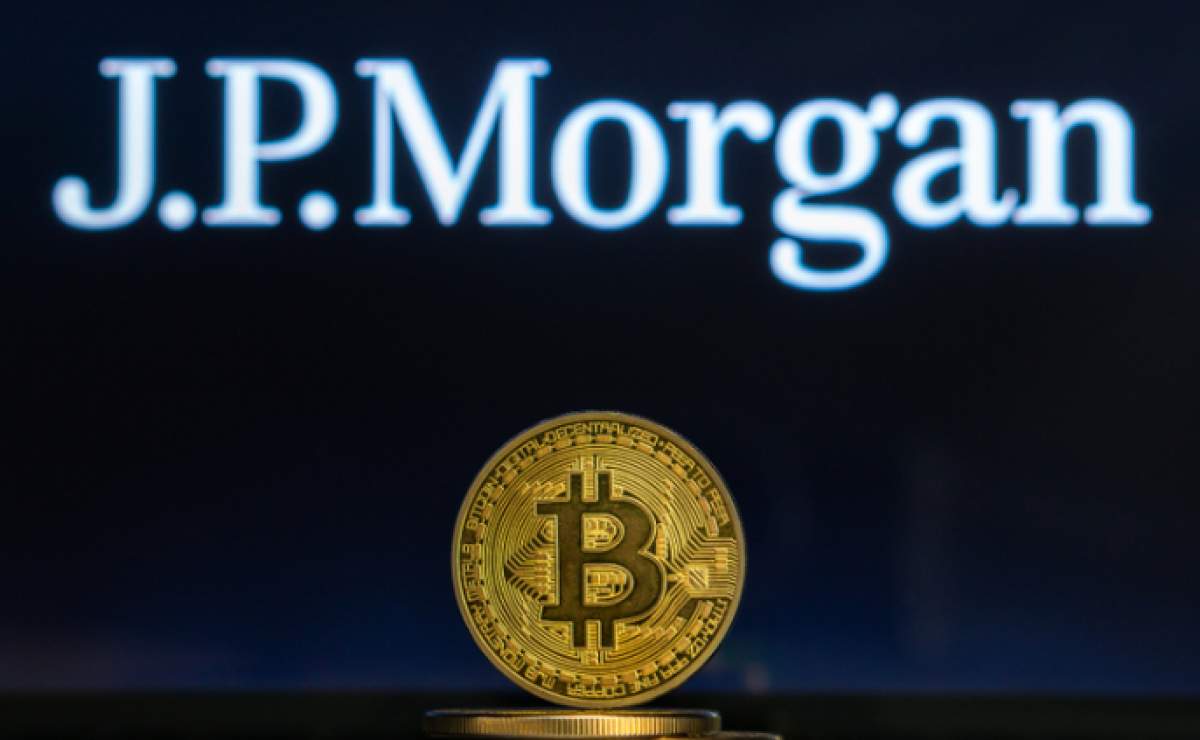JPMorgan Quietly Opens the Door to Bitcoin-Backed Lending
05.06.2025 15:00 1 min. read Alexander Stefanov
In a move that signals changing tides in traditional finance, JPMorgan is preparing to accept Bitcoin ETF holdings as collateral for loans—starting with BlackRock’s iShares Bitcoin Trust, according to insiders familiar with the plan.
The initiative reflects a broader shift within the bank, where regulated crypto products are beginning to earn treatment once reserved for stocks or real estate. What was once considered too risky is now being evaluated under more familiar financial frameworks.
This development isn’t happening in isolation. The bank is reportedly planning to integrate crypto-linked assets into the financial profiles of its wealth clients, potentially boosting their credit access and liquidity options.
The pivot is especially notable given CEO Jamie Dimon’s vocal disdain for Bitcoin in the past. Though he remains skeptical, Dimon has conceded that the bank will support client demand—even if it’s for assets he personally doesn’t endorse.
Meanwhile, JPMorgan’s blockchain arm—now rebranded as Kinexys—is steadily expanding its role in institutional digital finance.
The bank’s latest strategy appears to be less about headlines and more about quietly positioning itself for the next phase of asset-backed finance, with crypto now firmly on the table.
-
1
How Much Bitcoin You’ll Need to Retire in 2035
19.07.2025 19:09 2 min. read -
2
Esports Giant Moves Into Bitcoin Mining
05.07.2025 13:00 2 min. read -
3
Bitcoin Price Prediction: As BTC Hits New All-Time High Is $200K In Sight?
14.07.2025 21:56 3 min. read -
4
Bitcoin Dominance Nears Key Resistance — Is Altseason Coming Next?
13.07.2025 17:00 2 min. read -
5
Elon Musk Unveils His Own ‘America Party,’ Signals Pro-Bitcoin Political Shift
07.07.2025 11:40 2 min. read
Is Bitcoin’s Summer Slowdown a Buying Opportunity?
Bitcoin may be entering a typical summer correction phase, according to a July 25 report by crypto financial services firm Matrixport.
Massive Bitcoin Move Sparks Panic, Price Tests Range Low
Bitcoin has dropped sharply to test its local range low near $115,000, with analysts pointing to renewed whale activity and long-dormant supply movements as key contributors to the decline.
Bitcoin Scarcity Deepens: Less Than 5.3% Left to Mine
Bitcoin has reached a critical milestone in its programmed supply timeline—only 5.25% of the total BTC that will ever exist remains to be mined.
Strategy to Raise Another $2.47 Billion for Bitcoin Acquisition
Strategy the company formerly known as MicroStrategy, has announced the pricing of a new $2.47 billion capital raise through its initial public offering of Variable Rate Series A Perpetual Stretch Preferred Stock (STRC).
-
1
How Much Bitcoin You’ll Need to Retire in 2035
19.07.2025 19:09 2 min. read -
2
Esports Giant Moves Into Bitcoin Mining
05.07.2025 13:00 2 min. read -
3
Bitcoin Price Prediction: As BTC Hits New All-Time High Is $200K In Sight?
14.07.2025 21:56 3 min. read -
4
Bitcoin Dominance Nears Key Resistance — Is Altseason Coming Next?
13.07.2025 17:00 2 min. read -
5
Elon Musk Unveils His Own ‘America Party,’ Signals Pro-Bitcoin Political Shift
07.07.2025 11:40 2 min. read


